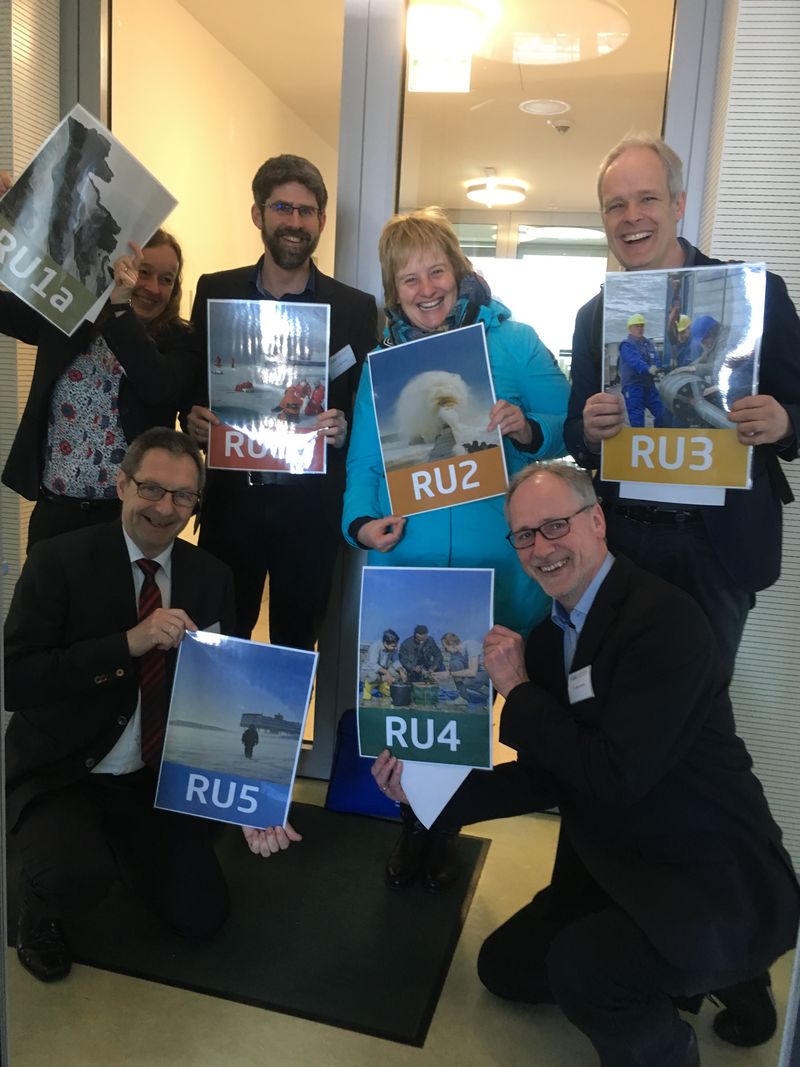Program-Oriented Funding
By pooling the diverse resources of its various research centers, Helmholtz is in the unique position of not only being able to offer solutions to individual problems, but also to comprehensively address the complex issues facing science, society, and the economy and to develop system solutions.Research Program MARCOPOLI
(2004-2008)
"Marine, Coastal and Polar Systems"
Topic MAR2, (co-Speaker)
Begutachtung "Marine, Coastal and Polar Systems"
Research Program PACES-I (2009-2013)
Topic 3, Lessons from the Past (Speaker since 1.5.2013)
Topic 4: Synthesis: The Earth System from a Polar Perspective; Workpackage WP 4.2: The Earth System on Long Time Scales. (Speaker 2009-2013)
Research Program
PACES-II
(2014-2020)
Research program PACES-II, Topic 3: The earth system from a polar perspective - Data, modelling and synthesis. (Speaker)
A robust finding from reconstructions of past climate and projections of future climate change is that the high-latitudes are most sensitive to climate forcing within the Earth system. The detection and understanding of trends, the mechanisms for polar amplification, and their role in modulating global climate are central themes in this topic. Enhanced knowledge of processes of past and present climate change is crucial to separate between natural and anthropogenic forcing, to explore the predictability of the polar climate system and to enhance the reliability of future climate projections. Our approach is to generate palaeo-climate data and scenarios obtained from a combination of ice, marine, lake, and permafrost archives in tandem with Earth system modelling and analysis, thus enabling an improved understanding of atmosphere-ocean-land-ice processes at regional and global scales. This relies on a sound expertise in the acquisition and interpretation of data and modeling.
Workpackage 1: Circumpolar climate variability and global teleconnections at seasonal to orbital time scalesWe investigate the role of polar regions in past climates by generating a circumpolar synthesis of Quaternary multi-proxy records from land, ocean and ice combined with Earth system modelling.
Workpackage 2: Earth system on tectonic time scales: From greenhouse to icehouse world
We study the influence of geodynamic-tectonic processes on palaeo-environmental conditions and glacial evolution at high latitudes in the last 65 million years by data-based reconstructions in combination with modelling.
Workpackage 3: From process understanding to enabling climate prediction: Explore mechanisms, predictability and global influences of polar climate variability and change.
Research Program
"Changing Earth - Sustaining our Future". (2021-2027)
With the program “Changing Earth – Sustaining our Future" we will lay the path towards a future Earth that can sustain human society and the biosphere as a whole.
Topic 2,
Ocean and Cryosphere under climate change
(Speaker since 1.1.2021)
ST2.1: Warming Climates
ST2.2: Variability and Extremes
ST2.3: Sea Level Change
ST2.4: Advanced Research Technologies for Tomorrow
Here is a video
